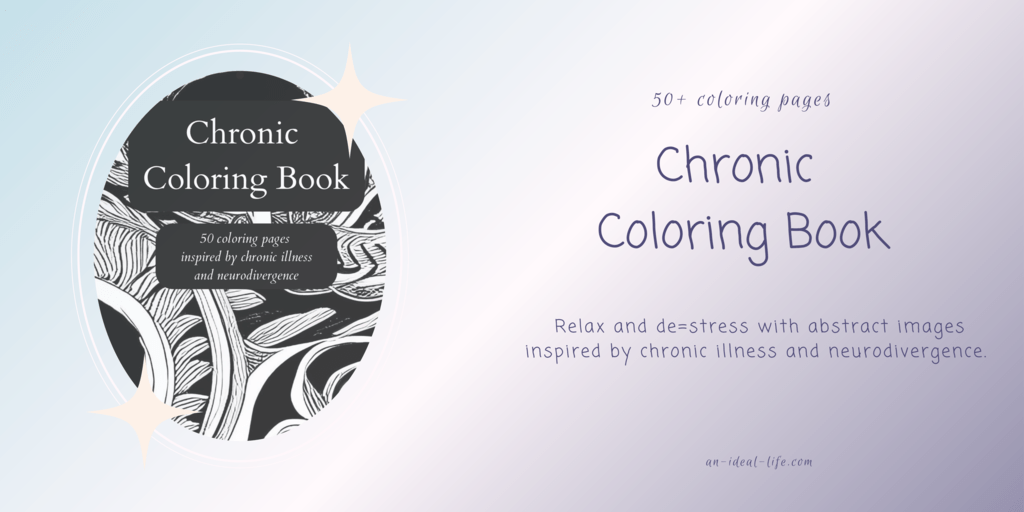The Benefits of Therapy for Rare Disease Patients
Living with a rare disease can be an isolating and challenging experience for many individuals. The journey of coping with chronic illness and navigating the intricacies of neurodivergent conditions can take a toll on both physical and emotional well-being. While treatments and medications play a vital role in managing symptoms, therapy offers a unique avenue for support, empowerment, and improved quality of life for patients with rare diseases. The benefits of therapy for rare disease patients are vast, allowing spoonies to cope with the emotional toll of their conditions and enhance their overall well-being.
*This post may include affiliate or referral links. At no extra cost to you (and with a special reader discount, in some cases!), I’ll receive a small commission or other rewards to help support An Ideal Life. As an Amazon Associate, I earn from qualifying purchases*
The information in this blog post is provided for educational and informational purposes only and should not be construed as medical advice. The content is not intended to be a substitute for professional medical advice, diagnosis, or treatment. Always seek the advice of your physician or other qualified healthcare provider with any questions you may have regarding a medical condition. Never disregard professional medical advice or delay seeking it because of something you have read online. The author of this post is not a licensed medical professional and does not assume any liability for any actions taken based on the information contained in this post.
Acknowledging the Emotional Impact:
Receiving a rare disease diagnosis can be a life-altering event, leaving patients with feelings of shock, confusion, and fear. Therapy for rare disease patients provides a safe space for individuals to process these emotions and explore the challenges they face. A qualified therapist can help patients acknowledge and validate their experiences, promoting a sense of emotional well-being and resilience.
Coping with Uncertainty:
Living with a rare disease often means dealing with uncertainty about the future and the progression of one’s condition. Therapy for rare disease equips patients with coping strategies to manage anxiety and stress related to this uncertainty. By providing tools for mindfulness, relaxation techniques, and cognitive restructuring, therapy can significantly improve patients’ ability to navigate the unpredictable nature of their health journey.
Managing Chronic Pain:
For many individuals with rare diseases, chronic pain is a constant companion. Physical pain can lead to emotional distress and exacerbate feelings of frustration and helplessness. Therapeutic approaches like cognitive-behavioral therapy (CBT) can help patients develop effective pain management techniques, reducing the impact of chronic pain on their daily lives.
Addressing Mental Health:
Living with a rare disease may lead to an increased risk of mental health challenges, such as depression, anxiety, and feelings of isolation. Therapy for rare disease patients offers a supportive environment to explore and address these issues, fostering mental well-being and promoting a positive outlook on life.
Building Resilience:
Patients with rare diseases often face unique challenges and societal misconceptions about their conditions. Therapy for rare disease patients can empower them to build resilience and develop a strong sense of self despite the limitations imposed by their health conditions. By focusing on personal strengths and fostering a growth mindset, therapy can inspire patients to embrace their uniqueness and thrive in their journey towards a fulfilling life.
Navigating Relationships:
Living with a rare disease can impact relationships with family, friends, and romantic partners. Therapy can help patients navigate these complex dynamics by improving communication, setting healthy boundaries, and fostering a support network. Building strong relationships can significantly enhance patients’ emotional well-being and overall quality of life.
Holistic Wellness:
An interest in holistic wellness practices aligns well with the therapeutic approach. Therapists often integrate mindfulness, meditation, and relaxation techniques into their sessions, promoting holistic well-being. By addressing the mind-body connection, therapy can complement other wellness practices that patients may already be exploring.
Creativity and Self-Expression:
For many individuals with rare diseases, creativity and self-expression serve as vital outlets for emotional release and personal growth. Therapy can encourage patients to explore creative avenues such as art, writing, or music, allowing them to process their emotions and find empowerment through self-expression.

Social Justice and Advocacy:
Passion for social justice aligns with the broader impact that therapy can have on rare disease communities. Therapy can inspire patients to become advocates for themselves and others, fostering a sense of empowerment and driving positive change in healthcare policies and public perception.

If you’re struggling with your mental health, consider utilizing Talkspace online therapy.
When seeking therapy for rare disease is a valuable resource, it’s essential to consider accessible and innovative platforms that can cater to individual needs. One such platform that aligns perfectly with the requirements of our target audience is Talkspace—a leading online therapy platform that offers a range of benefits tailored to the unique challenges faced by patients living with rare diseases.
Be sure to check out our ultimate guide to Talkspace online therapy!
Convenience and Accessibility:
One of the significant advantages of Talkspace is its convenience and accessibility. For patients with rare diseases, attending in-person therapy sessions might be challenging due to mobility issues or a lack of specialists in their area. With Talkspace, individuals can access professional therapy from the comfort of their own homes, eliminating barriers and making support readily available at their fingertips.
Flexible Communication Channels:
Patients with rare diseases often have fluctuating health conditions, making it difficult to commit to a fixed therapy schedule. Talkspace offers a variety of communication channels, including messaging, audio, and video calls, allowing individuals to engage with their therapist based on their convenience and energy levels. This flexibility ensures that patients can receive support even during challenging times.
Overall Privacy:
Privacy is paramount when discussing personal experiences and emotions related to living with a rare disease. Talkspace ensures confidentiality, providing a secure platform for patients to share their thoughts openly without fear of judgment. This is particularly crucial for individuals who may not feel comfortable discussing their conditions openly on traditional social media platforms.
Holistic Wellness:
With its powerful therapeutic practices, Talkspace promotes holistic wellness practices that align with the interests of our target audience. Therapists on the platform may integrate mindfulness, meditation, and other holistic techniques into their sessions to complement patients’ existing wellness practices.
Living with a rare disease presents a multitude of challenges that can feel overwhelming and isolating. Patients often endure a complex journey of managing symptoms, coping with uncertainty, and navigating emotional struggles. However, amidst these difficulties, there are valuable resources available to empower and support individuals on their health journey. One such resource is therapy—a transformative tool that can make a significant difference in the lives of patients with rare diseases and neurodivergent conditions.
Therapy provides a safe and supportive space for patients to explore and validate their emotions, cope with uncertainty, and develop resilience. It addresses the emotional toll of rare disease and offers strategies for managing chronic pain and mental health challenges. Through therapy, patients can build strong relationships, embrace their uniqueness, and become advocates for themselves and others.







